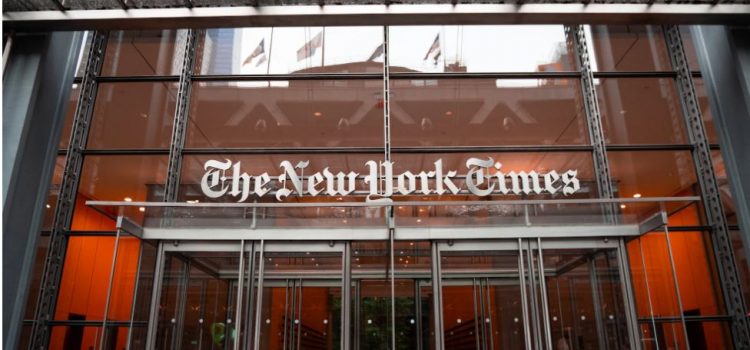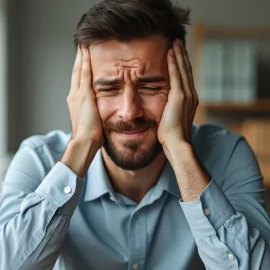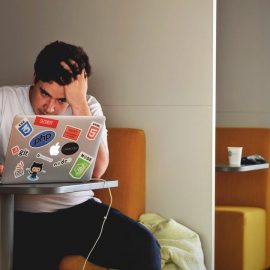
This is a free excerpt from one of Shortform’s Articles. We give you all the important information you need to know about current events and more.
Don't miss out on the whole story. Sign up for a free trial here .
What is The New York Times AI lawsuit about? How might the outcomes of this case impact copyright laws, AI, and journalism?
The New York Times recently signaled a major copyright battle in suing OpenAI and Microsoft, alleging unauthorized use of its content to train their AI chatbots. The lawsuit could change copyright laws and set a precedent that shapes future disputes over AI use of copyrighted material.
We’ll go over the details of the lawsuit and legal experts’ responses below.
The New York Times vs. OpenAI & Microsoft
In December, The New York Times launched a lawsuit accusing OpenAI and Microsoft of copyright infringement. The publisher claims that the tech firms used millions of its articles without permission to train their AI chatbots.
Examination of the Lawsuit
At the heart of The New York Times’ legal battle with OpenAI and Microsoft are two key claims:
Claim 1: OpenAI and Microsoft exceeded the boundaries of “fair use” by replicating tens of thousands of Times articles without permission or compensation. This training equipped their respective chatbots—ChatGPT and Microsoft’s CoPilot (formerly Bing Chat)—with the ability to generate content akin to that of the Times, potentially luring away the publisher’s audience. The lawsuit highlights numerous instances where the bots responded with near-verbatim quotes from subscription-only Times articles, without appropriately citing the source.
At the heart of The Times’ lawsuit lies the apprehension that readers may pivot toward these AI chatbots for their information needs. Such a shift could bypass the Times‘ website, resulting in reduced web traffic and potentially leading to a decline in both advertising and subscription revenue.
Claim 2: OpenAI and Microsoft chabots could damage The Times’ brand by fabricating false information (“hallucinating”), then inaccurately attributing this misinformation to the Times. This, the Times alleges, could harm its longstanding credibility and reputation.
Legal observers draw attention to what stands out in the Times lawsuit against OpenAI—a claim that the alleged copyright infringement impairs its ability to fund public service journalism, thereby threatening the broader independent journalism sector.
The Times is seeking damages and asking the court to bar the tech firms from using its content and destroy data pools containing its work.
Legal Experts’ Responses
According to copyright law, use of original content is more likely considered “fair” if it’s “transformative”—in other words, adding something new without changing the original work’s purpose or character.
Experts say that OpenAI and Microsoft’s legal teams may justify the use of content by ChatGPT or Microsoft’s Copilot as “transformative.” They could argue that answers the bots’ produce are inspired by—not directly copied from—training material, thereby creating “original” responses. Hence, their output doesn’t directly replicate or compete with the Times’ content.
View 1: OpenAI and Microsoft’s Defense Is Weak
However, some legal experts say that the tech firms don’t have a strong defense under fair use regulations, since they’re effectively rival information providers to the Times.
In addition, these companies have already agreed to pay other publishers for their content, weakening their “fair use” argument.
Finally, the fact that defendants’ bots appear to have copied large sections of Times content, near-verbatim, raises doubts about whether their output is truly “transformative.”
View 2: The AI Tech Firms’ Stance is Strong
However, some policy experts counter that OpenAI and Microsoft are on solid footing. They say that copyright laws and ‘fair use’ doctrine allow the use of copyrighted works for research and technological development—thereby making the training of LLMs using publicly accessible content on the internet protectable under ‘fair use.’ They further contend that AI doesn’t claim to mirror Times content or compete directly as a news source.
Looking Ahead
Experts say The Times’ lawsuit could be a game-changer for copyright laws—redefining legal structures, particularly for AI systems that create text, images, or other content. The legal battle could be pivotal for the news industry, challenging the future of online journalism as traditional print outlets wrestle with a shift to the internet.

Want to fast-track your learning? With Shortform, you’ll gain insights you won't find anywhere else .
Here's what you’ll get when you sign up for Shortform :
- Complicated ideas explained in simple and concise ways
- Smart analysis that connects what you’re reading to other key concepts
- Writing with zero fluff because we know how important your time is






